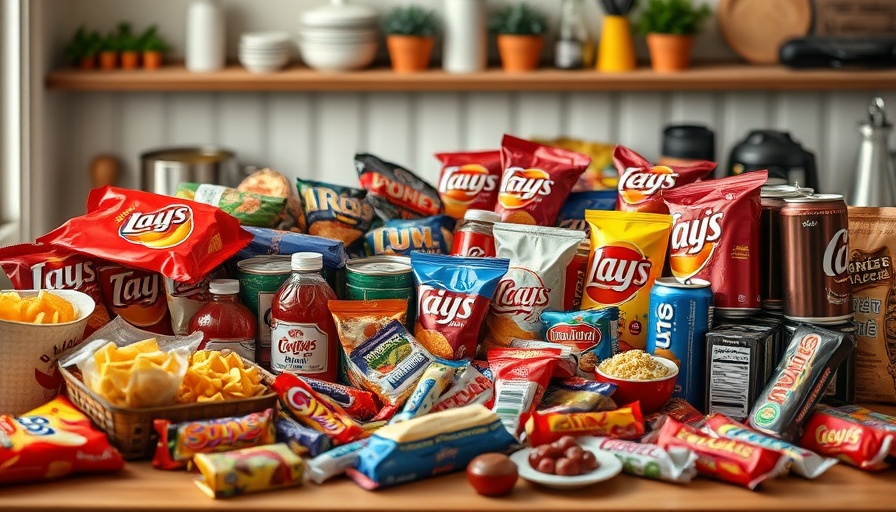
The Hidden Dangers of Ultraprocessed Foods
As our society leans into convenience, many are becoming increasingly reliant on ultraprocessed foods. These items, often high in sugar, unfriendly fats, and artificial additives, are not just linked to physical health issues but also the rising prevalence of mental health disorders. Recent studies spotlight a concerning correlation: daily consumption of ultraprocessed foods may boost the risk of depression in older adults.
Understanding the Link Between Diet and Mental Health
The idea that what we consume affects our mental well-being is not new, but it is gaining momentum in research. Nutritional psychiatry is an emerging field that explores how dietary choices influence our mental health. By examining various studies, we find a consistent theme: diets high in ultraprocessed foods often lead to poorer mental health outcomes, particularly among older adults. For many, these foods replace more nutritious options, making it easier for the brain to fall into a state of disrepair.
Real-Life Experiences: The Human Face of Depression and Diet
Consider the story of Linda, a vibrant 67-year-old grandmother who loved baking cookies for her grandchildren. Over time, her diet shifted to convenience as work and life pressures mounted, leading her to rely heavily on store-bought pastries and snacks. Linda found herself feeling more sluggish and irritable, which was later linked to the increase in her consumption of ultraprocessed foods. Although the correlation isn’t always straightforward, such personal narratives illustrate a broader trend affecting many older adults.
Combatting Ultraprocessed Food Consumption
So, what can you do if you or a loved one is experiencing the effects of a diet high in ultraprocessed foods? Here are some actionable insights:
- Mind Your Labels: Educate yourself on reading food labels. Look for minimal ingredients, and steer clear of those filled with additives.
- Cook at Home: Whenever possible, try to prepare meals at home using whole, natural ingredients. This not only nurtures your body but can also lift your spirits.
- Prioritize Fresh Produce: Incorporate fresh fruits and vegetables into your daily meals. Not only do they provide essential nutrients, but they also help maintain your mood and mental clarity.
Looking Ahead: A Call for Awareness
As we delve deeper into the relationship between diet and mental health, it becomes increasingly clear that our choices significantly impact our well-being. Recognizing the risks associated with ultraprocessed food consumption is crucial, especially for older adults whose mental resilience may be more fragile. For a healthier future, let’s prioritize a sustainable, nutrient-rich diet that supports our bodies and minds.
 Add Row
Add Row  Add
Add 



 Add Row
Add Row  Add
Add 

Write A Comment